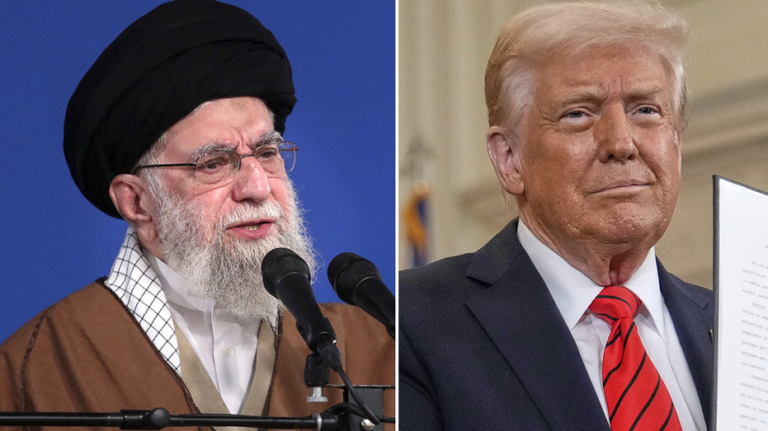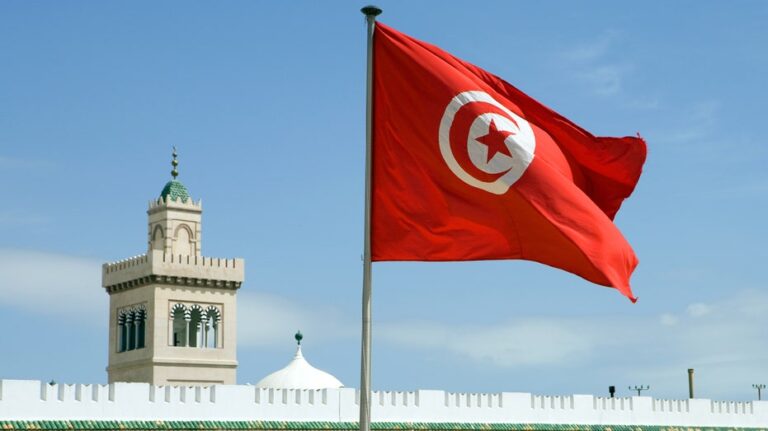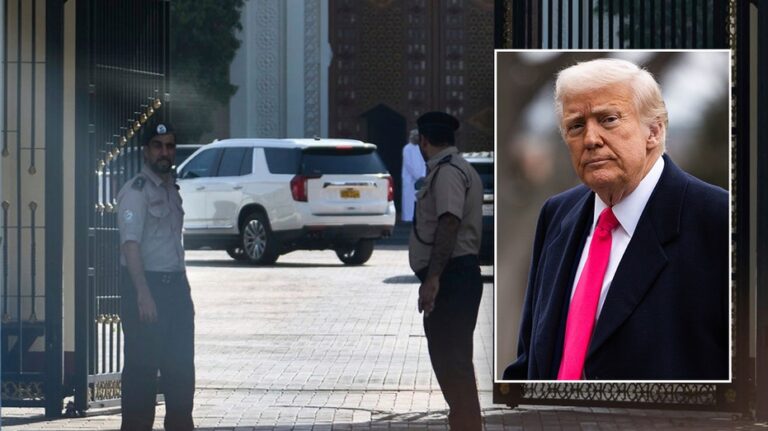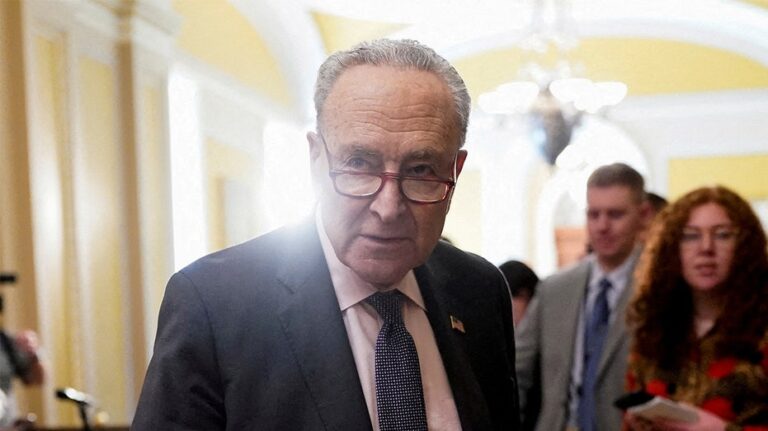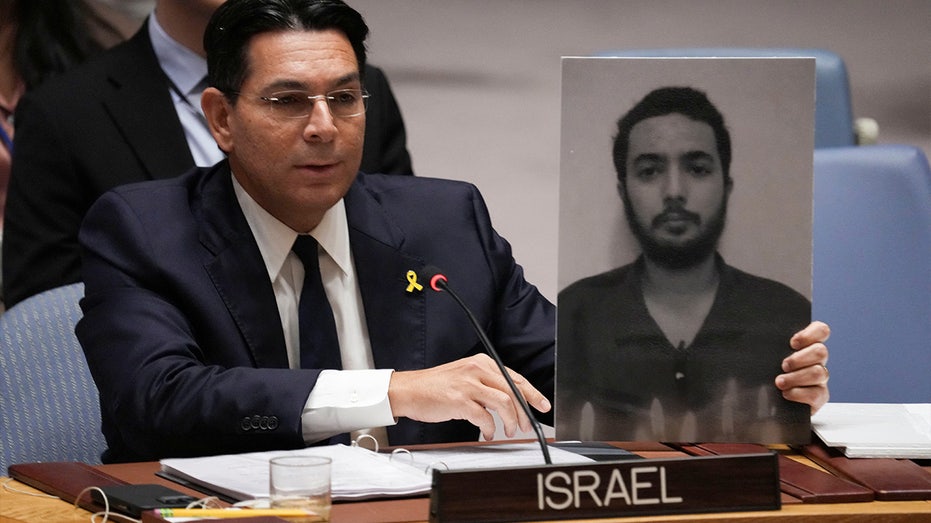
Israel faced a ‘hostile’ environment at the UN General Assembly as nation after nation took to the podium to condemn ‘war crimes’ and ‘genocide’ in Gaza amid a high civilian death toll in the war against Hamas.
The tone was set Tuesday in the hall of the United Nations in New York City after the General Assembly reacted to Secretary-General António Guterres’ contempt for Israel’s attacks in Gaza, but sat silent during his condemnation of Hamas’ near-year-long capture of Israeli hostages.
“Let’s be clear, nothing can justify the abhorrent acts of terror committed by Hamas on Oct. 7 or the taking of hostages, both of which I have repeatedly condemned,” he said as the General Assembly sat and watched. “And nothing can justify the collective punishment of the Palestinian people.”
The secretary-general’s comments were followed by applause by the international body before he continued and said, “The speed and scale of the killing and destruction in Gaza are unlike anything in my years as Secretary-General.”
BIDEN ADDRESSES UN GENERAL ASSEMBLY FOR LAST TIME AS DICTATORS, DESPOTS COME TO NEW YORK
Israel’s ambassador to the U.N., Danny Danon, immediately called out the international body for “hypocrisy” following its resounding condemnation of Israel’s fight in Gaza.
“When the U.N. secretary-general speaks about the release of our hostages, the U.N. assembly is silent, but when he speaks about the suffering in Gaza, he receives thunderous applause,” he said in a statement. “This is the opening signal for the annual charade of hypocrisy.”
The tone of the overall assembly was particularly dark after Guterres warned the “state of our world is unstainable” and said, “We can’t go on like this.”
But despite the range of issues he addressed, including the more than two-year war in Ukraine, the civil war in Sudan, female oppression worldwide, the wrath of climate change and global hunger, it was the war in Gaza that dominated the addresses that followed.
The President of Brazil, Luiz Inácio Lula da Silva, who opened the assembly’s debate following Guterres’ opening remarks, called out Israel and argued that it is Jerusalem’s fault there are still 101 hostages in the hands of Hamas.
“There have been over 40,000 fatal victims, mostly women and children,” the Brazilian president said regarding the number of Palestinians killed in Gaza, though the figure does not differentiate between civilians and Hamas terrorists killed. “The right to defense has become the right to vengeance, which prevents an agreement for the release of the hostages and postpones the ceasefire.”
Turkish President Recep Tayyip Erdogan, who has long been critical of Israel, openly drew parallels between Israeli Prime Minister Benjamin Netanyahu and Nazi leader Adolf Hilter and called Israeli prisons “concentration camps.”
“Just as Hitler was stopped by an alliance of humanity, Netanyahu and his murder network must be stopped by an alliance of humanity,” Edrogan said.
Erdogan, like the other nations who followed him, accused Israel of flouting international law and questioned when the nations of the U.N. were going to do something about it.
“I call out to the United Nations Security Council, what are you waiting for to prevent the genocide in Gaza?” He questioned before positioning his next question at nations like the U.S.: “How long are you going to be able to carry the shame of witnessing this massacre?”
When asked by Fox News Digital about the overall tone of the morning’s debate, the Israeli ambassador to the U.N. called it “shameful” and said it was the “most hostile” environment he has seen in his roughly 10 years of attending the general debate.
The King of Jordan, Abdullah II bin Al-Hussein, echoed the warnings issued by Guterres and said the U.N. is “under attack,” arguing Israel’s continued assault with the backing of the U.S. was to blame.
“I cannot recall a time of greater peril than this,” he said. “Our United Nations is facing a crisis that strikes at its very legitimacy and threatens a collapse of global trust and moral authority.”
“For years, the global community has taken the path of least resistance, accepting the status quo of the ongoing military occupation of Palestinians all the while paying lip service to the two-state solution,” Al-Hussein added in direct reference to comments made by President Biden just minutes prior.
The leader of Qatar, Sheikh Tamim bin Hamad Al Thani, echoed the criticisms of his predecessors, accusing Israel of committing “a crime of genocide” and hitting at the heart of the U.S.’s continued support for Jerusalem.
“We oppose violence and the targeting of innocent civilians by any party,” he said. “But after a year of the war…it is no longer tenable to talk about Israel’s right to defend itself in this context without being complicit in justifying the crime.”
Like his predecessors, the Qatari leader argued that Israel’s allowance by the international community to continue to carry out strikes in Gaza questions the legitimacy of the United Nations as a whole and has “inflicted serious damage on the credibility of the post-World War II concepts on which the international community was founded.”
Qatar has played a major role alongside the U.S. and Egypt in an attempt to engage Hamas and Israel in cease-fire negotiations. Though he argued this will not be achieved until Israel stops its occupation in not only Gaza, but elsewhere.
“There is no point in talking about security, peace, and stability in the Middle East region…if not backed by concrete steps leading to an immediate ceasefire and an end to the Israeli occupation of all Arab territories,” he said in reference to Palestinian lands identified under U.N. Resolution 181, like Gaza and the West Bank, as well as the Golan Heights which Israel seized from Syria following the Six Days War in 1967.
